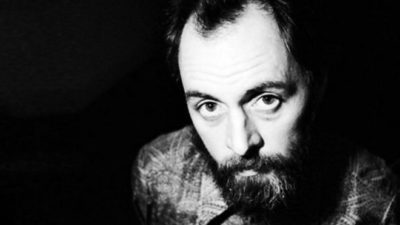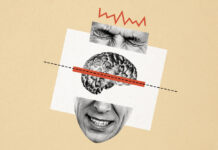From BBC: RD Laing, Scotland’s most famous psychiatrist who has been revered as the “high priest of anti-psychiatry,” is the subject of a new film called Mad To Be Normal. The film features Kingsley Hall, a safehouse founded by Laing where people diagnosed with schizophrenia could receive support without locks or traditional heavy duty drugs.
-
Who is the mad one?
They put people in prisons that they say are not prisons.
Mary Barnes” she painted the walls with her own faeces until they gave her paint to use instead.” -
The reviews of this film I’ve seen haven’t been completely positive. The movie itself is mostly fiction, and the picture is said to be carried by it’s lead, David Tennant. Adrian Laing, R.D. Laing’s son, said he didn’t recognize his father nor Kingsley Hall in this picture. I guess that means they will have to do another movie perhaps if they hope to begin to do justice to legacy of R. D. Laing. I will watch it when I get the chance, but you could say that I’ve been forewarned. I wouldn’t characterize this as bad news entirely. Laing hasn’t gotten out of the news since his heyday. It helps to be considered, as Laing so often is, as something of a 1960s icon.
One who hasn’t fared so well since his much more recent death is Thomas Szasz, a man who saw Laing as something of his own personal Nemesis. What news there is regarding him or his views has slowed to a trickle. On the plus side, a book on Szasz is scheduled to come out this May, Thomas S. Szasz: The Man and His Ideas. Szasz, of course, was not without his following either, and this book may help renew a resurgence of interest there. I guess that begs the question of a Thomas Szasz movie, but why not? I would imagine there is much room for discovery among new generations when it comes to the ideas, perspective, and life of Thomas Szasz as well.
https://www.amazon.com/Thomas-S-Szasz-Man-Ideas/dp/141286514X
-
Laing should have paid more attention to his Canadian “cousins” in Saskatchewan, who learned that prolonged reactions to LSD were never psychedelic as well as being of no benefit in sobering their alcoholic patients, during the time Laing was just getting started in the early 1960’s.
-
Laing was not anti-psychiatry, he was a “hip” psychiatrist who capitalized on the premonitory vision of “anti-psychiatry.” His work was radical for the time, more as philosophy and poetry than anything else. Sanity Madness and the Family, written before Laing’s hippie period, was pretty interesting in a psychoanalytical sense if you can handle people being referred to as “schizophrenics.” But no way was he the father of any anti-psychiatry movement.
-
I want to say that I don’t see a complete negative in R. D. Laing. What amazed me when I was first diagnosed, etc., was the degree to which the experts were making medical metaphors out of human experience. Laing realized that there were human beings under all this specialized jargon and invalidating garbage. De-vitalizing people is one thing, re-vitalizing them is another. Kingsley Hall was an interesting experiment that the automaton establishment has grown immured to dissing. I’m not so keen on dissing it. The demonization of people in the criminal justice system is not nearly so terrifying to me as the diminishment of people in the mental health system. I would have a very hard time really getting ahead of the game, given the sub-human rights that go along with psychiatric character bashing, if I accepted all of that absolute crap without question. How about you?
-
I accept it as rubbish. Besides, that I take a lot of B3 every and also believe megascorbate is useful for preventing and/or treating virus ailments, is data that shrinks would use to affirm my incurable mental disability, and do such an excellent job of treating me that I wouldn’t be able to remember my name and address.
-















